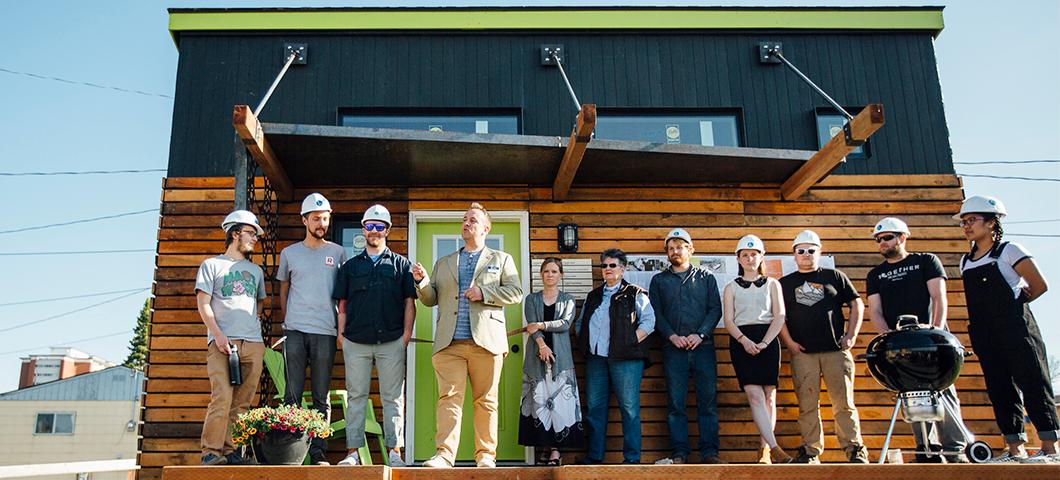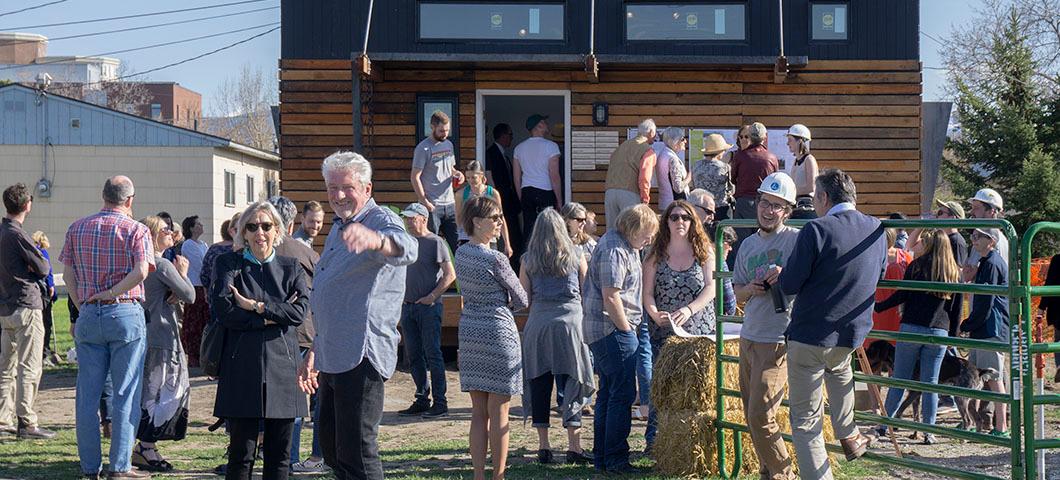The Community Design Center serves the people of Montana by reaching to non-profit
organizations and government agencies to provide visioning, planning and conceptual
design. The CDC fosters a collaborative interdisciplinary community/university partnership
approach that serves the people of Montana in research and design of the built environment.
Fourth year Architecture students participate in the Center’s activities while learning
to manage their own projects and determine appropriate design proposals, research
methods and production schedules with the assistance of the faculty advisors. Recent
projects included a retired living community in Ennis, downtown visioning for Choteau,
graphics for the Unified Development Ordinance in Bozeman and the Irving Elementary
School greenhouse in Bozeman.
A History of Helping
Having been active for over 40 years, the CDC boasts an extensive collection of project documents, carefully collected and preserved over the decades.
The 1970's:
The CDC was founded in 1976 by Bill Semple, who had a vision for students to experience project deliveries in a context similar to a firm. With real clients, the CDC provided a branch between communities in need of creative design work, and talented students seeking to share their work in a pragmatic setting. During these beginning years, the Design Center provided drawings and schematics for projects all over Montana (Bozeman, Gardiner, Butte) and even did international work in West Jefferson, North Carolina, and Seward, Alaska.
The 1980's:
Throughout the 80's, the CDC worked on a variety of cultural, residential, communtity, and educational projects, benefitting several communities throughout Montana, including: Bozeman, Gardiner, Belgrade, Harlowton, Dillon, Livingston, Terry, Pablo, and Whitefish. All of the images in this archive are scans of original hand drawings. Robert Meeker became director in 1983, but changes in the program left the CDC without a department head shortly after.
The 1990's:
In the 90's Ralph Johnson took over as director for the CDC. During this time, it operated still similar to a firm and used project money to fund facility projects around the architecture building, benefitting the school as a whole. Projects related to urban revitalization for towns all over the state were common in this period. Documentation moved to printed booklets, and a stylistic change in graphic communication defines this period.
The 2000's:
In 2005 Tom McNab became the new CDC director. Projects throughout Montana collaborated with various indigenous tribes, such as the Salish Kootenai or the Gros Ventre peoples. The 50-year master plan for the Rocky Boy’s Chippewa-Cree Reservation, a project from 2003, won the Institute Honor Award for Regional and Urban Design, a national award from the AIA. Many large projects were taken on, challenging the students with large scale structures to realize graphically. Both hand and computer drawings were common in this time.
The 2010's:
Tom Mcnab continued operating as the CDC director until 2018, when professor Brian Brush began leading CDC projects. Continuing to utlize student creativity in community outreach, one can observe the growth in the use of computer generated renderings, and the school's ability to utilize these tools skillfully.


